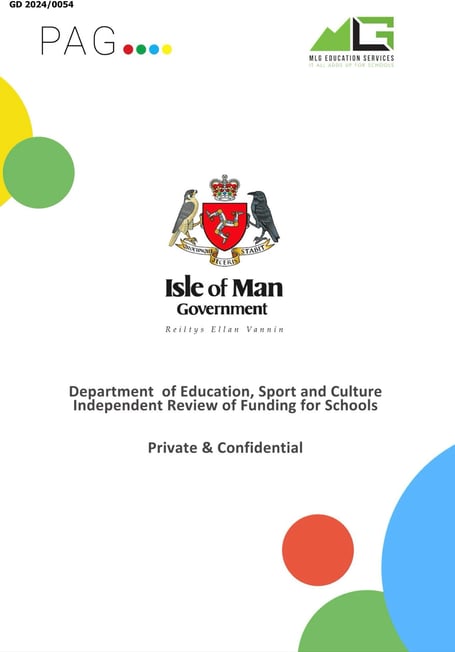Provision and funding of additional educational needs is severely underfunded and unsustainable in its current form, many headteachers believe.
That’s one of the findings of an independent review into school funding which has recommended that the Department of Education, Sport and Culture conducts a full review of additional educational needs - and suggests the creation of a centralised special school should be considered.
The number of island children with complex needs has increased significantly in recent years and is projected to rise by 35%. Currently, there are no special schools and all children with additional educational needs are educated in mainstream schools.
There are specialist provision centres (SPCs) integrated within all five secondary schools and in 10 primary schools.
But all of these centres are near or at capacity, notes the report, which was released this week.
It also highlights a severe lack of specialists such as speech and language therapists and educational psychologists - resulting in the responsibility for specialist care falling on teaching staff.
Hadteachers who took part in focus groups as part of the review said they don’t have sufficient income to cover the staffing required for special needs provision and it is not possible to accommodate all AEN pupils within mainstream settings without considerable extra funding.
The report states that while ideally, SPCs would be available at all schools, this option is not efficient because of the setting up and running costs involved as well as the frequent lack of space, resources, and expertise available to support them.
Instead, it recommends the DESC should conducts a detailed feasibility study around opening a new special school or creating fewer, significantly bigger SPCs.
It says a more centralised model would free up space in schools increase the quality of resources and access to specialist expertise.
Pupils may have to travel further than they currently do to their local SPC, but travel costs could be covered by the DESC from efficiency savings generated, says the report.
In its response the DESC said it wanted to appoint a project manager to oversee a full review of AEN which would include looking at alternative provision for pupils with less complex needs. The independent report, which was carried out by Premier Advisory Group and MLG Education Services between autumn 2022 and summer 2023, was commissioned by the Council of Ministers.
It will be debated at the July sitting of Tynwald along with the DESC’s response.
Among its most controversial conclusion is that eight of the ‘most inefficient’ primary schools - a move that the DESC says it will not support.
The report also argues a number of secondary schools are ‘over-staffed’ and advocates reducing the number of teachers by between 30 and 53.



.jpeg?width=209&height=140&crop=209:145,smart&quality=75)
Comments
This article has no comments yet. Be the first to leave a comment.